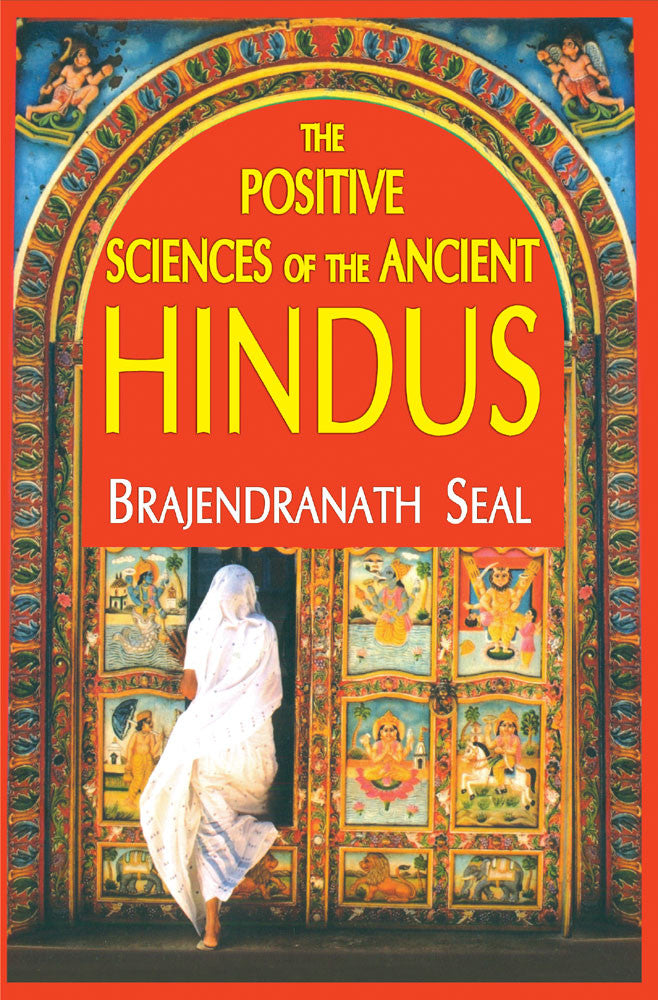The Positive Science of the Ancient Hindus
The Positive Science of the Ancient Hindus - Paperback is backordered and will ship as soon as it is back in stock.

The Positive Science of the Ancient Hindus - Paperback is backordered and will ship as soon as it is back in stock.
The author's direct aim in the present work is to furnish the historians of the special sciences with new material which will serve to widen the scope of their survey. The Hindus no less than the Greeks have shared in the work of constructing scientific concepts and methods in the investigation of physical phenomena, as well as of building up a body of positive knowledge which has been applied to industrial technique; and Hindu scientific ideas and methodology (e.g. the inductive method or method of algebraic analysis) have deeply influenced the course of natural philosophy in Asia-in the East as well as the West-in China and Japan, as well as in the Saracen Empire. The author has undertaken a comparative estimate of Greek and Hindu science. Hindu Philosophy om its empirical side was dominated by geometrical concepts and methods. The author has cared to see that the Sanskrit philosophico-scientific terminology, however difficult from its technical character, is rendered exceedingly precise, consistent, and expressive.
Review(s)
Excerpts from reviews:
The Vedantists believe Maya to be the "material cause" of the world. The power of Maya is the power to realise the unreal-to impart practical Reality or mediate existence to that which does not and cannot possess absolute Reality or self-existence. Maya is at once real and unreal, while the Brahma (Self)is a absolute Reality, absolute Intelligence, and absolute Bliss. The world evolves out of Maya so that Maya in the Vedanta replaces the Prakriti of the Sankhya. But Maya and by implication the world, originate out of Brahma, not by a process of evolution, but of Vivarta ( Self-alienation). The self alienation of the Absolute, action through Maya, produces in the beginning Akasa- one, infinite, ubiquitous, imponderable, inert and all-pervasive.
B.K.KELKAR,Organiser, July 1986
Dr. Seal was a well-known and respected teacher in science and his monographs on certain themes relating to Indian Science throw a helpful light on the approach of the Hindu mind to the study of matter, Life and Mind. The author gives a comparative estimate of the Greek and Hindu sciences.He points out that the Hindu philosophy on its empirical side was influenced by concepts from physiology; the Greek was influenced by geometrical concepts and methods. He also examines to what extent the Indian sciences influenced developments in the Mid-East and Far-East.
M.P. PANDIT, World Union
The seven chapters comprising the book take up for discussion mechanical, physical and chemical theories; ideas of mechanics (kinetics), accoustics, plant life, animal classification,physiology and biology; and, finally, the Hindu doctrine of scientific method. The exposition is very lucid and an impressive effort is made to support all statements with original quotations drawn from Hindu, Buddhist, and Jain sources.
T.N. MADAN, Institute of Economic Growth
About the Author(s)
Sir Brajendra Nath Seal (1864-1938)was a renowned Bengali Indian humanist philosopher.He earned his M.A. degree in philosophy from the University of Calcutta in 1884 and started out as a lecturer at the City College, Calcutta. In 1915,he earned his doctorate from the University of Calcutta on the subject of The Positive Sciences of the Ancient Hindus. In 1896, Maharaja of Cooh Behar offered him the post of a principle of the newly established Victoria College. Thereafter he held the most prestigious chair of philosophy in India, the King George V Professorship of philosophy at the University of Calcutta. He helped Nobel laureate Rabindranath Tagore in founding the Visva-Bharati University and became its first Chancellor. During the same time, he was also appointed the Vice-Chancellor of the University off Mysore, a position he held till 1930, when ill health forced him to retire. In 1926, the government of British India Knighted him.
Among his other publications include- A Memoir on the Co-efficient of Numbers: A Chapter on the Theory of Numbers (1891),Neo-Romantic Movement in Bengali Literature (1890-91), A Comparative Study of Christianity and Vaishnavism (1899), New Essays in Criticism (1903), Introduction to Hindu Chemistry (1911), Race-Origin (1911), Syllabus of Indian philosophy (1924), Rammohan Roy: The Universal Man (1933),and The Quest Eternal(1936).
-
Pages
-
Edition
-
Size
-
Condition
-
Language
-
Weight (kg)
-
Publication Year
-
Country of Origin
-
Territorial Rights
-
Reading Age
-
HSN Code
-
Publisher




